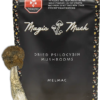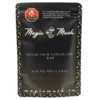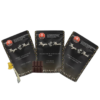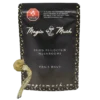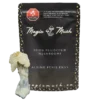Mixing Shrooms and Alcohol. When I was younger, I didn’t really think twice about mixing substances. The idea of exploring new experiences seemed like a rite of passage, especially among friends. One particular night stands out to me—the kind of night that, in hindsight, was both fun and a little eye-opening. After a few drinks with my buddies, someone pulled out some magic mushrooms, and we all decided to dive into the psychedelic experience together. At first, it felt like the perfect combination: the buzz from the alcohol blended seamlessly with the initial effects of the shrooms. There was that sense of relaxation that came with the alcohol, while the mushrooms started to kick in, and I felt the veil of reality lift, just as expected.
But things took an unexpected turn as the trip began to deepen. What initially felt like an exciting adventure soon became a strange and uncomfortable limbo. The alcohol, instead of enhancing the experience, started to feel like an anchor weighing me down. My thoughts became cloudy and sluggish, and my body felt heavy and uncoordinated. Instead of staying grounded after a psychedelic trip, I felt trapped in a fog. The introspection and clarity I usually experienced with shrooms were dulled by the alcohol, and the whole experience became more about trying to manage the discomfort than enjoying the ride. It was a stark contrast to the lucid, mind-expanding journeys I had experienced in the past with just the mushrooms alone.
Looking back on that night, it was clear to me how much alcohol interfered with what could have been a much more profound and meaningful trip. The combination made it harder to focus, explore my emotions, or have the usual insights I sought from psychedelic experiences. The mix not only clouded my perception but also created a sense of unease and confusion. This experience got me thinking: Is it really safe to mix shrooms and alcohol, or are we just setting ourselves up for a less-than-ideal time?
That’s the question I want to explore with you today—whether combining magic mushrooms and alcohol is a smart choice or a risky gamble. After all, when it comes to psychedelics, it’s not just about the substance itself but about creating the right environment and mindset for a safe and meaningful experience. Let’s take a closer look into the science, the risks, and the potential benefits (if any) of mixing these two substances, so you can make an informed decision about whether or not you want to venture down that path.
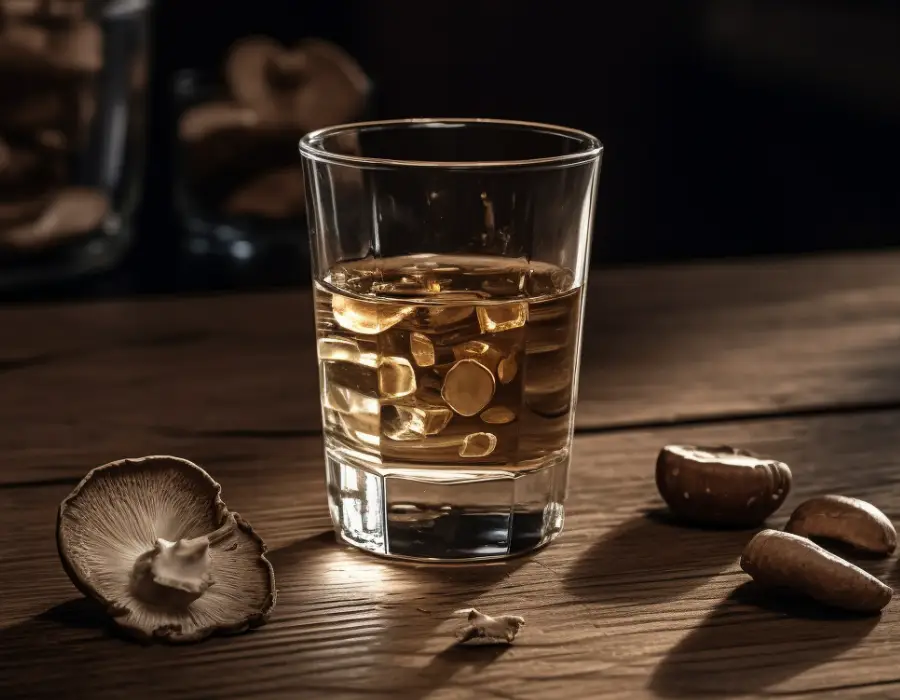
How Alcohol and Psilocybin Work Separately
When it comes to mixing alcohol and psilocybin (the active compound in magic mushrooms), it’s essential to first understand how each substance works on its own. Both alcohol and psilocybin interact with the brain in unique ways, influencing everything from perception to emotional regulation. However, their mechanisms of action are quite different, and this difference plays a significant role in how they affect the body and mind when consumed together. To grasp the potential risks and benefits of combining these substances, let’s break down the individual effects of alcohol and psilocybin.
Psilocybin: A Window to Expanded Consciousness
Psilocybin is a naturally occurring psychedelic compound found in certain species of mushrooms. When ingested, it’s converted into psilocin, which then interacts with serotonin receptors in the brain. This interaction is what leads to the characteristic effects of psilocybin, including altered perceptions of reality, vivid visual and auditory hallucinations, and profound shifts in consciousness. Psilocybin is often described as having a mind-expanding effect, with users reporting heightened awareness of their thoughts, emotions, and surroundings.
The primary way psilocybin affects the brain is through the serotonin system. Serotonin is a neurotransmitter that plays a key role in regulating mood, perception, sleep, and other cognitive functions. Psilocin binds to serotonin receptors, particularly the 5-HT2A receptors, which results in an alteration of sensory processing and a deepened connection to internal thoughts and emotions. This can lead to highly introspective experiences, where users often report feelings of unity with the universe or heightened spiritual awareness. Additionally, microdosing on psilocybin has been shown to positively impact learning. This is why people often experience a greater sense of interconnectedness and a shift in perspective on life’s big questions during a psilocybin trip.
Alcohol: A Depressant That Slows Down the Mind and Body
Alcohol, on the other hand, is a central nervous system depressant, meaning it works by slowing down brain activity. When consumed, alcohol primarily interacts with the neurotransmitter gamma-aminobutyric acid (GABA) and the neurotransmitter glutamate. GABA inhibits neural activity, leading to a sedative effect, while alcohol also suppresses the excitatory actions of glutamate, which further dampens brain function. These interactions contribute to alcohol’s ability to impair judgment, lower inhibitions, and slow cognitive and motor skills.
One of the primary reasons people drink alcohol is for its relaxing effects. Alcohol can make you feel more sociable, reduce anxiety, and provide a temporary sense of euphoria. However, as the amount of alcohol consumed increases, these effects can turn negative. High levels of alcohol in the system impair memory, motor coordination, and decision-making abilities. At extreme levels, alcohol can lead to blackouts, unconsciousness, or even alcohol poisoning. Alcohol’s depressant properties can also suppress emotional regulation, making people more prone to emotional outbursts, mood swings, or aggression.

The Role of GABA and Serotonin: Two Very Different Paths
While alcohol and psilocybin each interact with neurotransmitters in the brain, they do so in drastically different ways. As mentioned earlier, alcohol primarily affects GABA and glutamate, both of which play roles in calming the brain, reducing anxiety, and impairing cognitive function. On the other hand, psilocybin interacts with serotonin, a neurotransmitter that is integral to mood regulation, perception, and cognitive flexibility. This is why alcohol and psilocybin can produce such contrasting effects when taken separately.
When combined, alcohol’s depressant properties could easily overpower psilocybin’s stimulating effects, dulling the trip and preventing users from experiencing the full spectrum of emotions and insights that psilocybin can offer. While alcohol may make someone feel more relaxed and social, it can also inhibit the clarity and depth of perception that many seek when consuming psychedelics. The effect on serotonin levels—especially in higher doses—could also lead to unpleasant feelings of nausea, confusion, or even anxiety, which are the opposite of what many hope to achieve during a psilocybin experience. This is a key reason why combining alcohol and psilocybin can be such a tricky proposition.
A Potentially Dangerous Cocktail: Why Their Effects Don’t Mix Well
Given the way these two substances interact with the brain, it’s clear that mixing alcohol and psilocybin isn’t the best idea for many people. The conflicting effects—psilocybin’s brain-boosting, consciousness-expanding impact versus alcohol’s ability to slow things down and impair motor skills—can lead to an uncomfortable, and sometimes even dangerous, experience. The heightened sensory input from the psilocybin can clash with the foggy, impaired perception caused by alcohol, making it difficult to navigate the trip or process emotions in a coherent way. What’s intended to be an enlightening, introspective journey may end up as a confusing, muddled experience.
In addition to this, the physical effects of both substances can compound each other, leading to discomfort. While alcohol dehydrates the body, psilocybin can sometimes lead to physical sensations such as dizziness, nausea, or body chills. When mixed, these effects can be amplified, making the experience even less enjoyable. The combination may also increase the risk of accidents or dangerous behaviors, as alcohol impairs judgment and motor skills, while psilocybin can create a distorted sense of reality, further impairing your ability to make sound decisions.
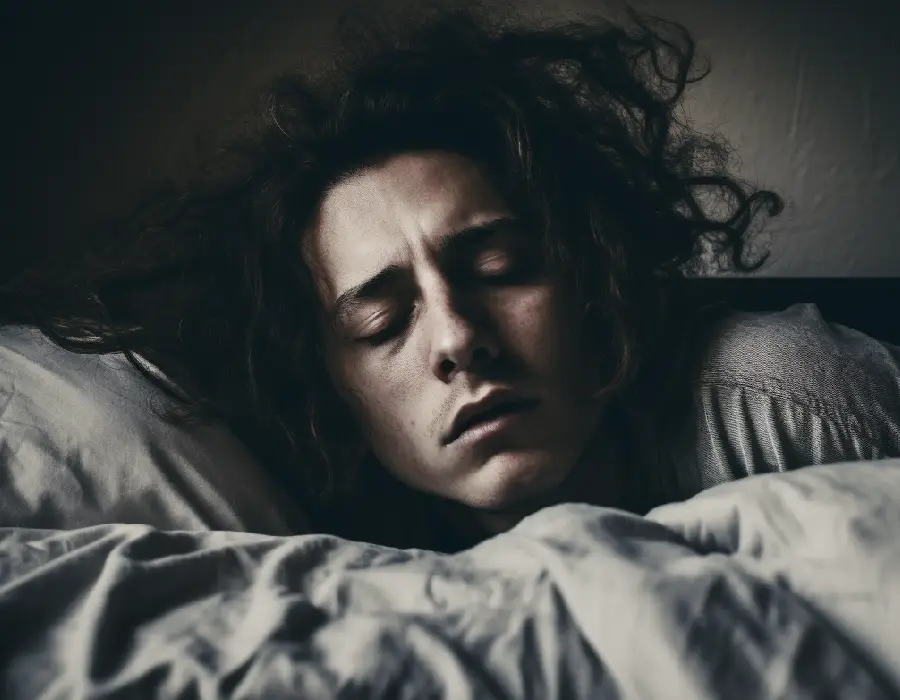
What Happens When You Combine Them?
When alcohol and psilocybin are mixed, the effects can be unpredictable. Alcohol can blunt the introspective, mind-expanding qualities of psilocybin, making it harder to connect with the psychedelic experience. In low doses, some people might feel a bit more social or relaxed, but this combination often doesn’t lead to a more enjoyable or meaningful trip.
In higher doses, alcohol can introduce physical discomfort—nausea, dizziness, and dehydration. Psilocybin trips can already come with some uncomfortable physical sensations, and alcohol only amplifies them. Add in cognitive dissonance, where alcohol impairs motor control and judgment, and navigating a psychedelic experience becomes even trickier. You might struggle to make sense of the trip or stay grounded in reality, which can increase anxiety and confusion.
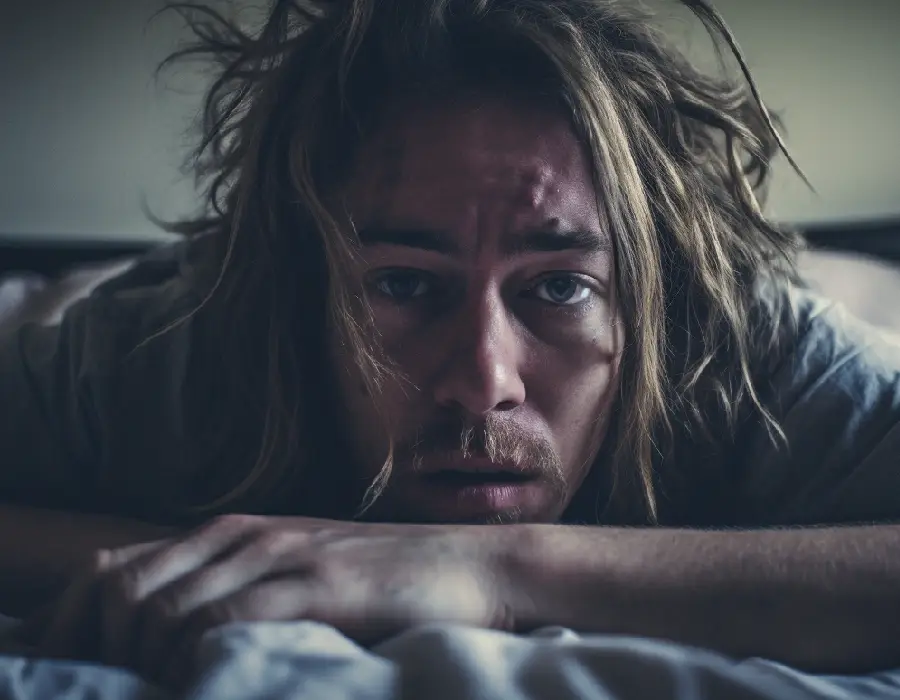
Scientific Research & Risks
While there is limited scientific research on the direct combination of alcohol and psychedelics, there are some significant risks that come from mixing these substances. Anecdotal reports from users suggest that this combination often leads to nausea, confusion, and heightened emotional volatility. Alcohol suppresses memory formation, which means you might have trouble recalling or integrating your psychedelic experience afterward. This makes it even harder to process what you’ve gone through, potentially limiting any insights you could gain from the experience.
There’s also the risk of blackouts or reckless behavior. Alcohol lowers inhibitions, which can make it harder to stay safe or control your actions during a trip. This could lead to risky behavior or decisions you might regret later. Since both alcohol and psilocybin can affect your cognitive and emotional state, combining them is essentially a gamble—one that could turn a potentially enriching experience into something much more challenging to navigate.
Key Takeaways & Harm Reduction Tips
If you do choose to mix shrooms and alcohol, moderation is crucial. Too much alcohol can completely disrupt your trip, making it more confusing and uncomfortable. Hydration is also important because alcohol can dehydrate you, which will only make the physical discomfort of a psychedelic trip worse. It’s essential to keep in mind the emotional effects as well—alcohol can amplify mood swings, which could lead to emotional instability during the trip.
Mixing alcohol and shrooms is not recommended for first-time users or those who are seeking a deep, introspective experience. If your goal is to explore the psychedelic journey fully, it’s best to go in with a clear mind and a sober body. Alcohol can dull the magic of the mushrooms, and in many cases, it detracts from the entire experience. It’s better to enjoy each substance for what it offers individually, rather than trying to combine them and risk diminishing the effects of both.
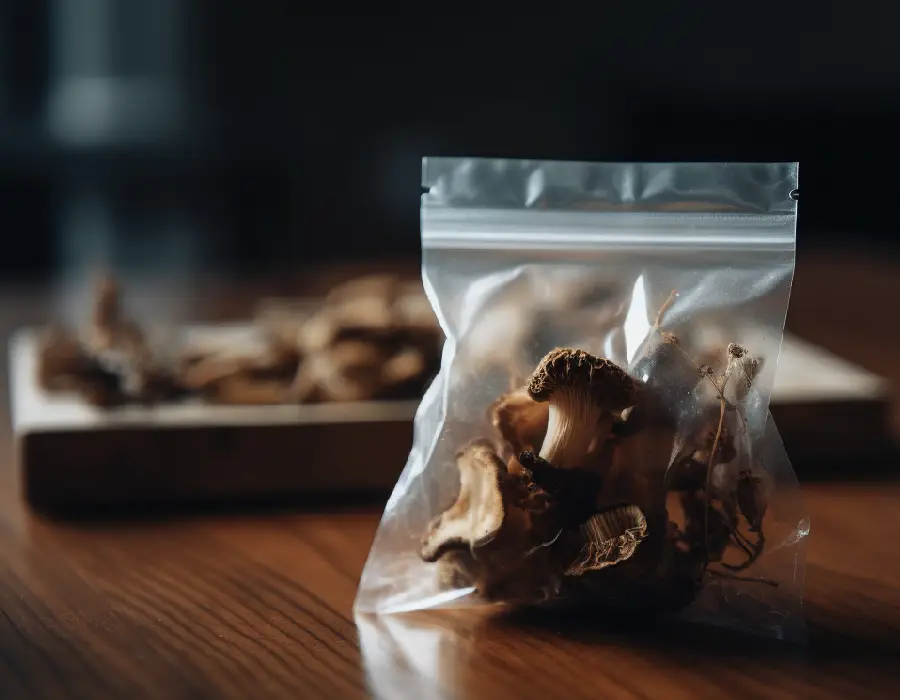
Explore Shrooms Safely Today with Magic Mush
Mixing shrooms and alcohol can be a tricky experience that may lead to confusion, nausea, and a less-than-ideal psychedelic journey. While some may find it enjoyable in small doses, the overall risk of impairing the mind-expanding effects of psilocybin makes it a less favorable choice for most people. Alcohol is a depressant, dulling the introspective and consciousness-expanding qualities that many seek from their psychedelic experiences. When combined with psilocybin, alcohol’s numbing effect can overshadow the potential for deep emotional insights and personal growth that many associate with magic mushrooms. For those who wish to truly tap into the profound benefits of psilocybin, it’s essential to approach these substances with respect and caution.
At the end of the day, moderation and awareness are key if you do choose to combine the two. Hydration, setting, and being mindful of emotional shifts will ensure you have a safer and more enjoyable experience. But if your goal is to embark on a meaningful journey with psilocybin, it’s best to avoid alcohol altogether. By keeping a clear mind, you’re better equipped to fully experience the potential of magic mushrooms and explore the valuable insights they can offer. The next time you’re considering mixing shrooms and alcohol, pause and think about what you’re hoping to get from the experience. Sometimes, it’s best to let each substance shine on its own.
When it comes to exploring the world of magic mushrooms, there’s no better place to start than with Magic Mush. As a trusted leader in the Canadian magic mushroom industry, Magic Mush is committed to providing high-quality products, education, and a safe environment for all customers. Whether you’re looking to buy premium magic mushrooms, learn more about proper dosing, or dive into the therapeutic potential of psychedelics, Magic Mush has you covered. With rigorous testing, a focus on safety, and a deep understanding of the benefits and risks, we ensure that every experience is both transformative and safe.
At Magic Mush, we believe in destigmatizing magic mushrooms and fostering a supportive community that encourages responsible use. We are here to guide you every step of the way—whether you’re new to psychedelics or an experienced user. With exceptional customer support, easy online shopping, and locations in California and Washington, Magic Mush is your trusted partner in your psychedelic journey. Join us today, explore the possibilities, and experience the transformative benefits of magic mushrooms with Magic Mush by your side. Trust us to provide you with the highest-quality products and the knowledge you need to make informed, empowered decisions.
